There will be dinners – like days – when nothing goes right. They begin so innocently hopeful, before everything that can go wrong, does. And yet within the chaos lies our salvation.
We arrive at the Tuscan Brick Oven Bistro in Freeport anticipating a meal as decent as those we’ve had there before. The jalapeño margarita ($10) has a refreshing zing on a warm late-July day, and the cool, wide-open space with mural-painted walls and comfortable banquette seating is full of contented people.
I’m energized and excited to catch up with my guest, Ann Hood, a lovely person and the author of seven books and a number of memorable essays, here for the week to teach at Stonecoast Writers’ Conference. Ann has long been a role model for me on writing about life’s inexplicable tragedies – for her it was the sudden loss of her beautiful young daughter Grace at age 5.
“I came here last night and it was amazing,” Ann tells me. For this reason we indulge the first misstep, wilted leaves in a mixed greens salad that last time was fresh and succulent. The salumi misto plate with pear and fig mostarda ($18) seems like it came straight from the deli, but no biggie, as we’re looking forward to the brick oven pizza ($13).
We order a glass of wine while waiting, but it tastes watered down, and we slowly begin to realize our pizza has been forgotten. And so, in our growing discontent, we notice the waitress never did the special production of pouring out the olive oil onto a bread plate like at the table next to us.
“As my husband always says – never take an Italian to an Italian restaurant,” Ann jokes. Her great-grandmother, it turns out, came to America from Italy in the 1890s, and as children Ann and her cousins used to help her make gnocchi for Sunday dinners for up to 70 extended-family members. On theme, Ann’s new book, “An Italian Wife,” due in September, is a family saga about a girl from Italy caught in an arranged marriage to an Italian man seeking his fortune in America.
We’re hoping the entrées will make up for the missing pizza, but the pork tenderloin with smoked prosciutto and vegetables ($24) is underdone and quivering, while the hand-rolled potato gnocchi ($19) is overdone and mushy. We do something both of us rarely do: Send the pork back.
We then pounce on the gnocchi, even though the pieces are soft as mashed potatoes, but at this point we’re starving. The accompanying mushrooms and duck have a hint of the enjoyable flavors I’ve experienced here before, but we agree it seems like the whole dish sat under the warmer too long.
“Never order gnocchi for a woman who used to make it with her Italian great-grandmother,” might be Ann’s husband’s new motto.
The manager returns with a steaming tenderloin that’s possibly a microwaved version of the one we sent back. It simmers while we devour the accompanying polenta frittes, which are at least unique and tasty. We qualify that the chef must be off tonight (I’d heard he has a new baby) and that the inconsistent food and service is a result of unreliable summer staffing, but there’s no escaping the disaster of our dinner. Still, we call the manager back and ask: “Can this meal be redeemed?”
Sometimes it can be; in this case, it isn’t. The chicken under a brick ($21) sent out for redemption is a completely inferior version of the one Ann polished off just the night before. “The skin isn’t crispy and the asparagus is mushy,” she says. “It tastes like a steamer plate version of the original.”
The waitress, whose face seems to darken as she nears our table, doesn’t even ask if we want dessert and simply brings the check. She took the entrées off the bill, but the manager never offers anything further in consolation, nor surprises us with that missing pizza we’re still pining for. How could a brick oven pie go wrong?
We were still inexplicably enjoying the evening and hoping for at least a tasty dessert, but the check stares at us like a rebuke – they just want us gone.
And suddenly the soft fabric of the summer evening becomes moth-bitten before my eyes. Each torn thread is a reason this is my fault. It’s because I’m growing out my prematurely silver hair and not yet comfortable with it, because I’m trying to be a restaurant reviewer when I should be working on my book. And most of all, since July is the month I lost my little sister when I was 7, it’s because I should have helped her up the ladder that long-ago day. If I had, she might still be alive.
“Grief made people guilty,” Ann wrote in “The Obituary Writer.” “Guilty for being five minutes late, for taking the wrong streetcar, for ignoring a cough or sleeping too soundly. Guilt and grief went hand in hand.”
Luckily I’m here with Ann Hood herself, and what I’ve learned from Ann and her writing is never to let life, or death, or a bad dinner, defeat you. Ann lost not only her young daughter in 36 hours to a virulent form of strep, but also her only sibling, her brother Skip, in a freak accident. Yet she sits here unbroken. She makes jokes about the gnocchi. She continues to live and to love.
“What I do know is this: there is no safe route through parenthood, or through life,” she says in a “Modern Love” essay for The New York Times about adopting a new child after losing her daughter. “When we offer our heart to others, we do not know what will happen to it. It may break. It may grow. It may take us places we never imagined. But isn’t that the risk of love? To be willing to stand on the stern on a beautiful summer day and, not knowing the outcome, to leap?”
When a dinner or a day or year goes wrong, there’s a tendency to let it haunt you. To carry it forward. What Ann has taught me is never to lose that innocent hopefulness with which you began. Tomorrow there will be a new meal. Soon enough, since I live in Freeport, I’ll likely give the Tuscan Brick Over Bistro another try. And who knows, it just might go right next time.
Melissa Coleman is interim restaurant reviewer for the Maine Sunday Telegram. Each week, she takes a writer or food expert to dinner with her to provide additional perspective. Coleman writes for national and local publications and can be found at melissacoleman.com. Her memoir, “This Life Is in Your Hands: One Dream, Sixty Acres, and a Family’s Heartbreak,” is about coming of age during the 1970s back-to-the-land movement.
Send questions/comments to the editors.

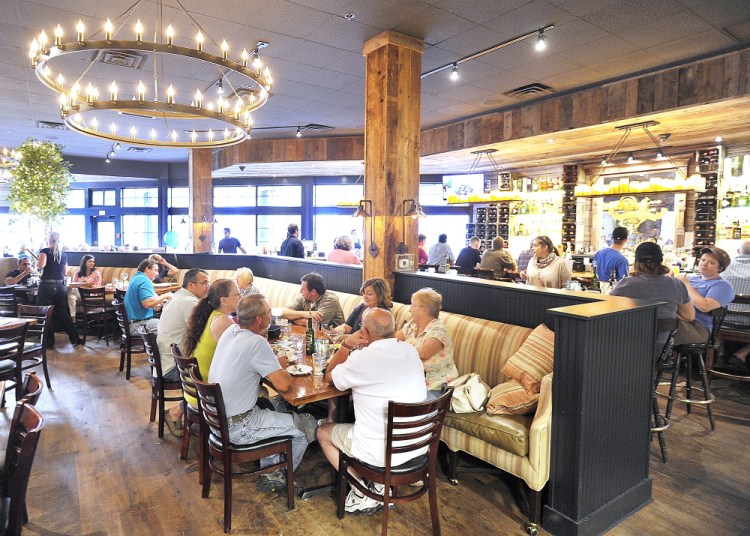
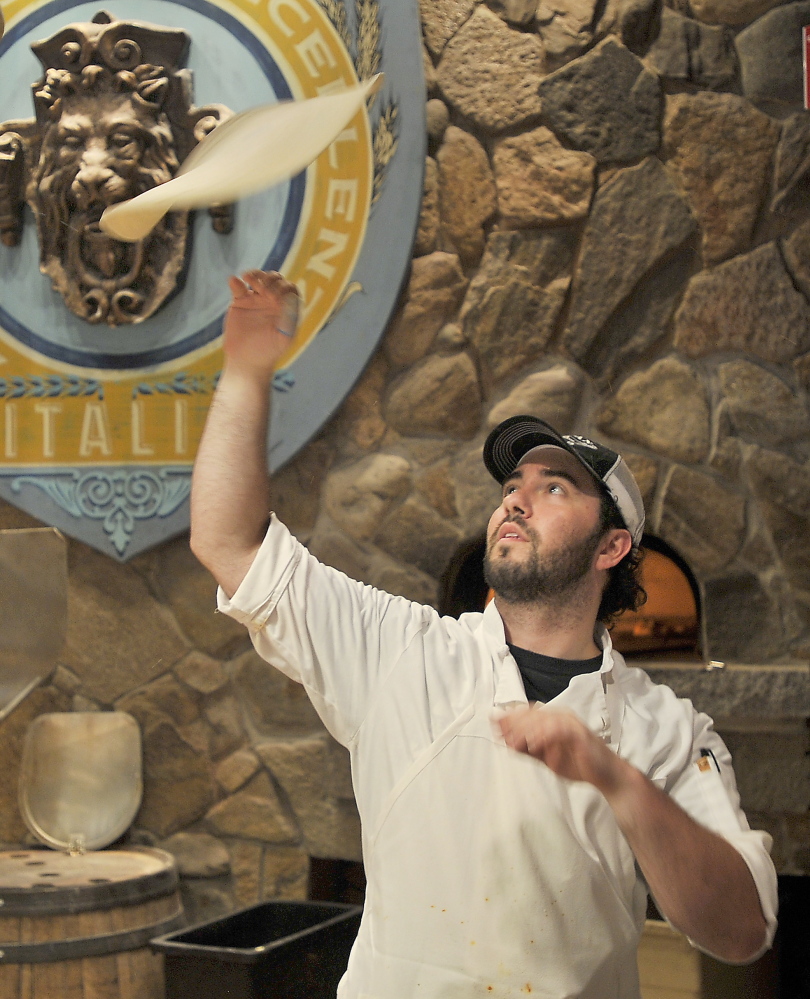
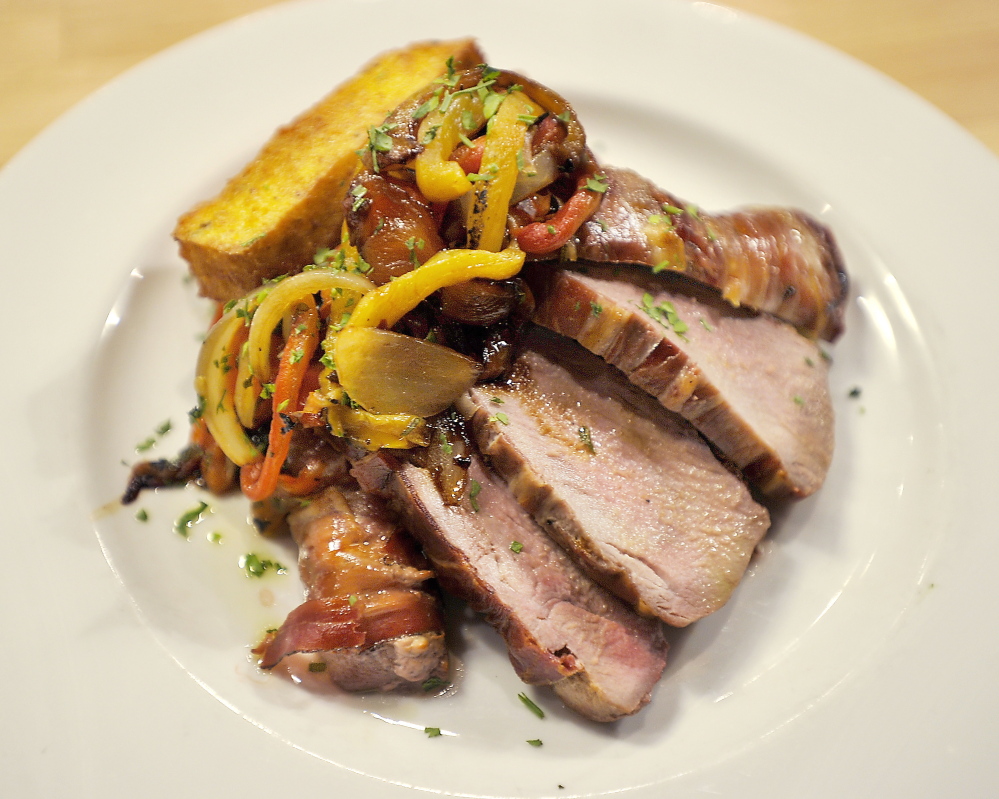
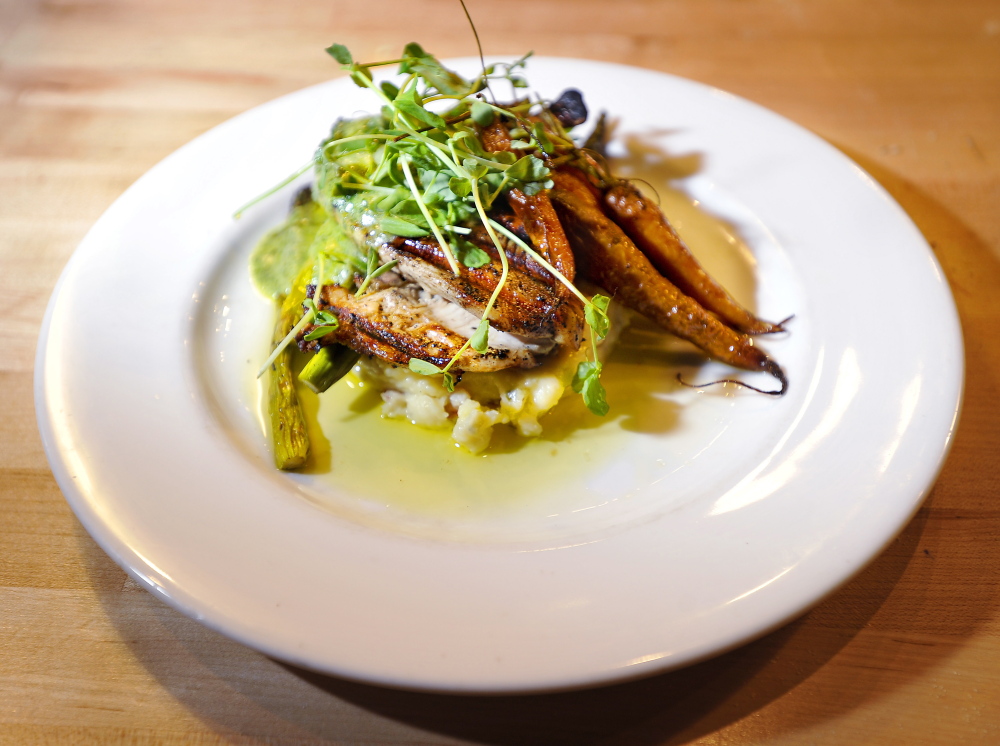

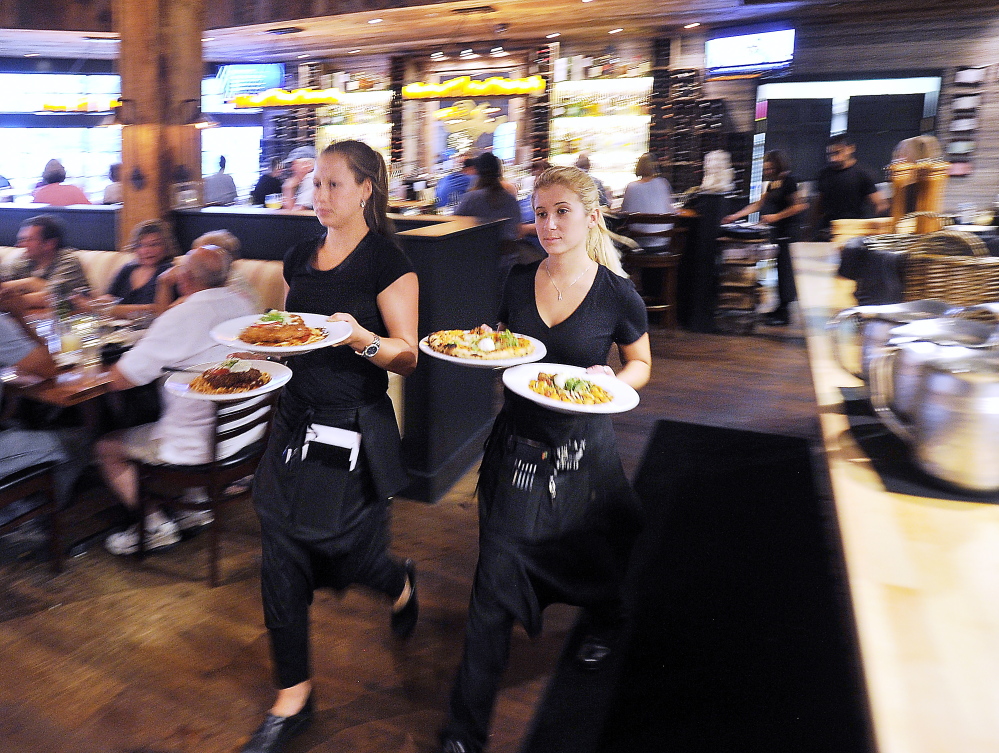

Comments are no longer available on this story